Hollywood & Spine Archive: The Sighs of Skywalker
An overview of the novelization to STAR WARS: THE RISE OF SKYWALKER, originally published in March 2020.
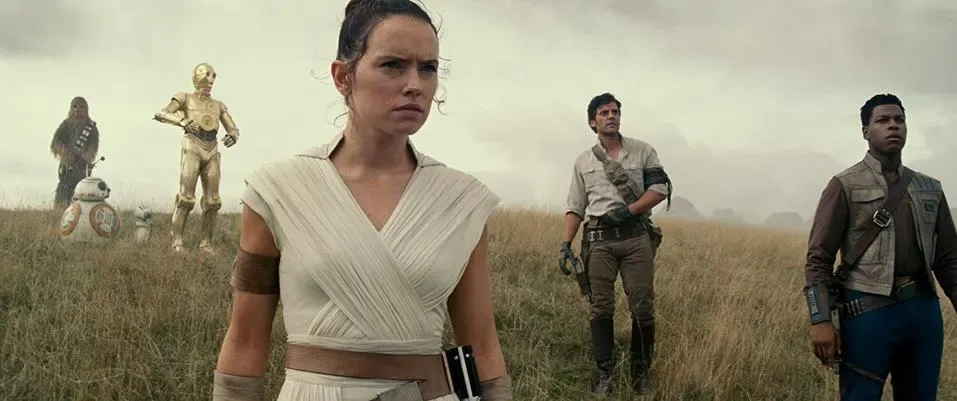
Looking back at this one - published just as we were all about a month into COVID-19 lockdown (I purchased this as an e-book, and was only a few weeks out from recovering from a case!) - it's now clear that we were sort of at an inflection point with novelizations the way we were definitely at an inflection point with blockbusters like this one. Marvel wrapped up its Infinity Saga and no one was yet aware of how the quality of future phases would slip. Star Wars essentially retreated from the movies from here on out, continuing in a series of Disney+ spinoffs of varying quality. And I think even before the post-COVID entertainment crunch, publishers and IP wranglers were maybe looking to cut bait on novelizations, with this being one of the last major franchise entries out the door. It's kind of a bummer, but the only thing constant in life is change, so maybe we're just waiting for the next paradigm shift in novelizations. (Originally published 4/6/2020)
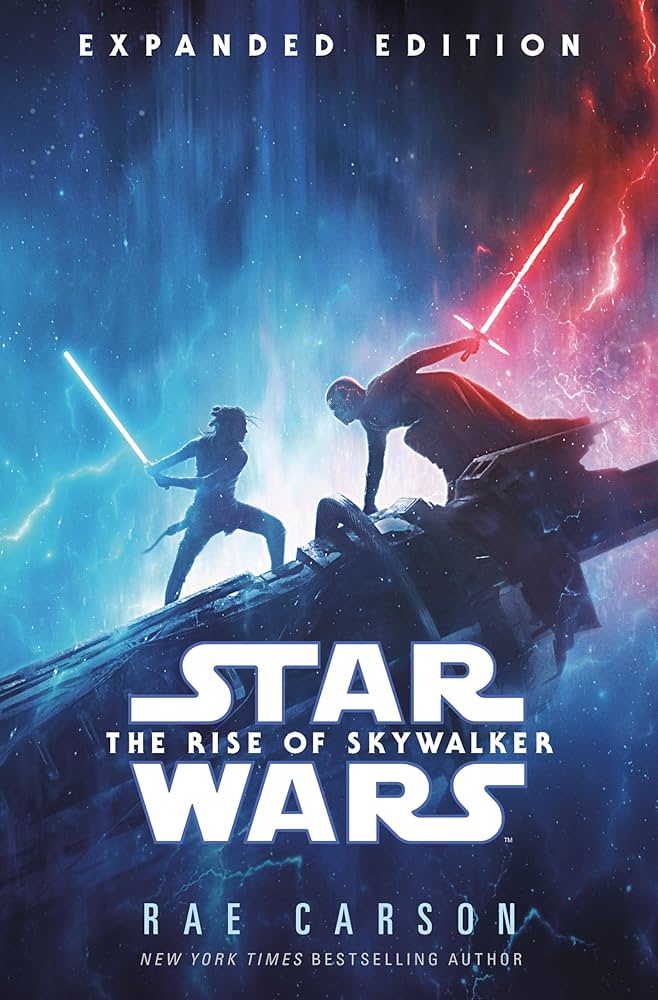
Welcome to another edition of Hollywood & Spine! Before we get into this month's book, I wanted to point our readers to a great piece from the Chicago Tribune last week that covers novelizations in some fun detail. Check it out here!
Star Wars: The Rise of Skywalker - Expanded Edition by Rae Carson (based on the screenplay by Chris Terrio & J.J. Abrams and a story by Derek Connolly & Colin Trevorrow and Chris Terrio & J.J. Abrams; based on characters created by George Lucas) (Del Rey, 2020)
The pitch: It's the final chapter in that space story you all know and love. Good faces evil, the future faces the past, and destinies? Oh, you know they're confronted.
The author: Rae Carson is primarily known as a writer of young adult fiction (the Fire and Thorns trilogy, the Gold Seer trilogy). Her history with Star Wars is expansive; she wrote a short story for From a Certain Point of View, a brilliant collection of stories set within the timeline of the original film, as well as one for the Canto Bight anthology. She also penned Most Wanted, a spin-off novel to the anthology film Solo: A Star Wars Story.
The lowdown: I've talked a lot about what the film novelization represented for film fans in the pre-home video era. Despite their archaic nature, written adaptations of books are still published today. Naturally, they're mostly based on sci-fi/horror material, usually with enough name recognition that'll get people to purchase. (Recent examples I've seen on shelves in the last year or so: the latest sequel/reboot of Halloween, a two-in-one adaptation of Happy Death Day and its sequel, the "who asked for these" sequels to Predator and Men in Black.)
The most famous novelizations of the past few years are tied to the new Star Wars films that Disney has been steadily releasing since 2015. Every installment of the new trilogy has received a book adaptation; so have the spin-off films Rogue One and Solo. But all of them were published well after the films left theaters (the better to avoid those pesky spoilers), and they're marketed as "expanded editions." That's right: the extra material writers used to uncover from earlier script drafts is now a feature, not a bug - the better for detail-obsessed Star Wars fans to pore over.
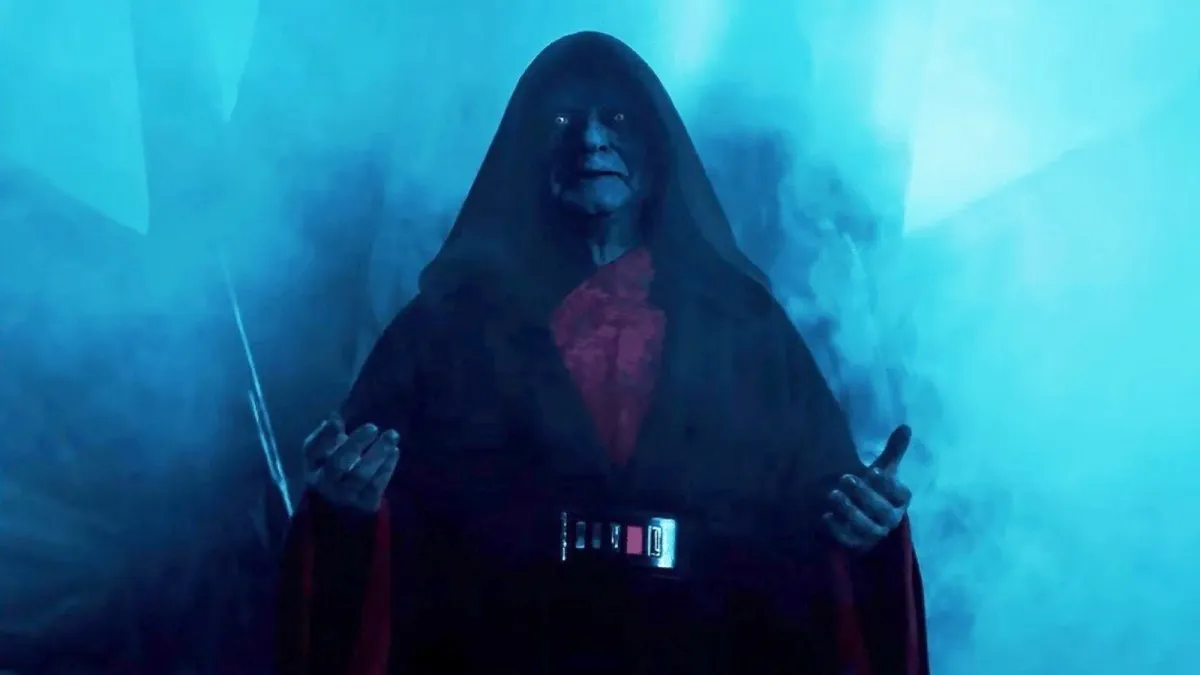
This all brings us to a most interesting juncture: as anyone plugged into pop culture last Christmas (such simpler times) can attest, opinions about Star Wars: The Rise of Skywalker - the closer to Disney's new trilogy as well as the "Skywalker saga" that's been told on film since 1977 - were a little mixed! Fans and critics had a lot of feelings about J.J. Abrams' end of the story: the hasty resurrection of the villainous Emperor Palpatine; the maniacal choice to connect the hero Rey's lineage to the galaxy's most potent evil; the incredibly low stakes that faked out incapacitating not one, but two beloved characters from the series; and a general onus to tie up the story neatly after 2017's also-polarizing Star Wars: The Last Jedi took both old and new characters in unanticipated directions.
So the pressure is arguably higher for The Rise of Skywalker as a book: by utilizing reams of fan-centric material and unused concepts, can the novelization enhance the experience of this uneven cinematic experience? Well...if you didn't think the movie was gonna pull it off, you're not going to be impressed by the book, either.
Reading The Rise of Skywalker, I was blown away by how the film's worst narrative decisions were retained on the page. The throat-clearing passage where Poe Dameron explains "Somehow, Palpatine returned"? No changes. The decision to show Chewbacca alive but captured by the First Order minutes after Rey thought she'd accidentally killed him? Still there. (Compare this scene to, say, the on-screen tension in Raiders of The Lost Ark, where the audience discovers Marion Ravenwood survived an exploding truck the same instant Indiana Jones does.) Worse, this sequence is extended in the book, where Chewie's presence serves as an irritant for Kylo Ren, attempting to "let the past die."
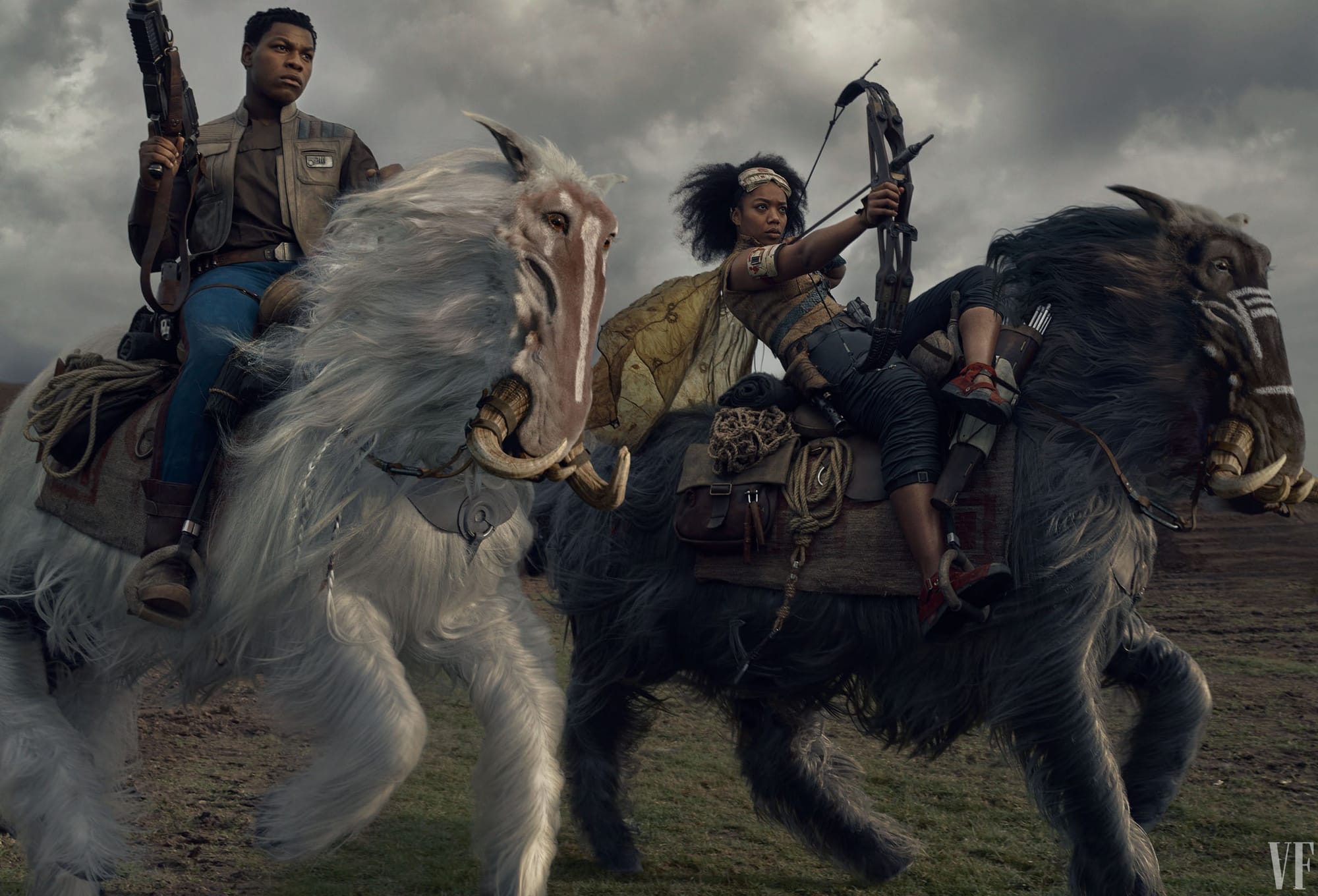
Some things in The Rise of Skywalker's novelization are said more explicitly than in the film. In the book, Palpatine is confirmed as a misfit clone, and Leia Organa's death is a long payoff to her physically taxing survival from The Last Jedi. (In the book, Luke Skywalker persistently calls her to become one with The Force, which she keeps resisting. It's a nice, bittersweet touch that would've been more impactful if Carrie Fisher's posthumous onscreen performance hadn't been awkwardly assembled in the edit bay, which the book makes no attempt to smooth out.)
Perhaps most egregious, however, is the treatment of that odd interaction Finn keeps having with Rey: the thing he kept trying to tell her (and ultimately never does). Unrequited feelings? Force sensitivity? The exactitude of his revelation is waved away at the book's end, when he tries to say whatever it is, only for Rey to say she knows and Poe to reply "We all know." No, we don't!
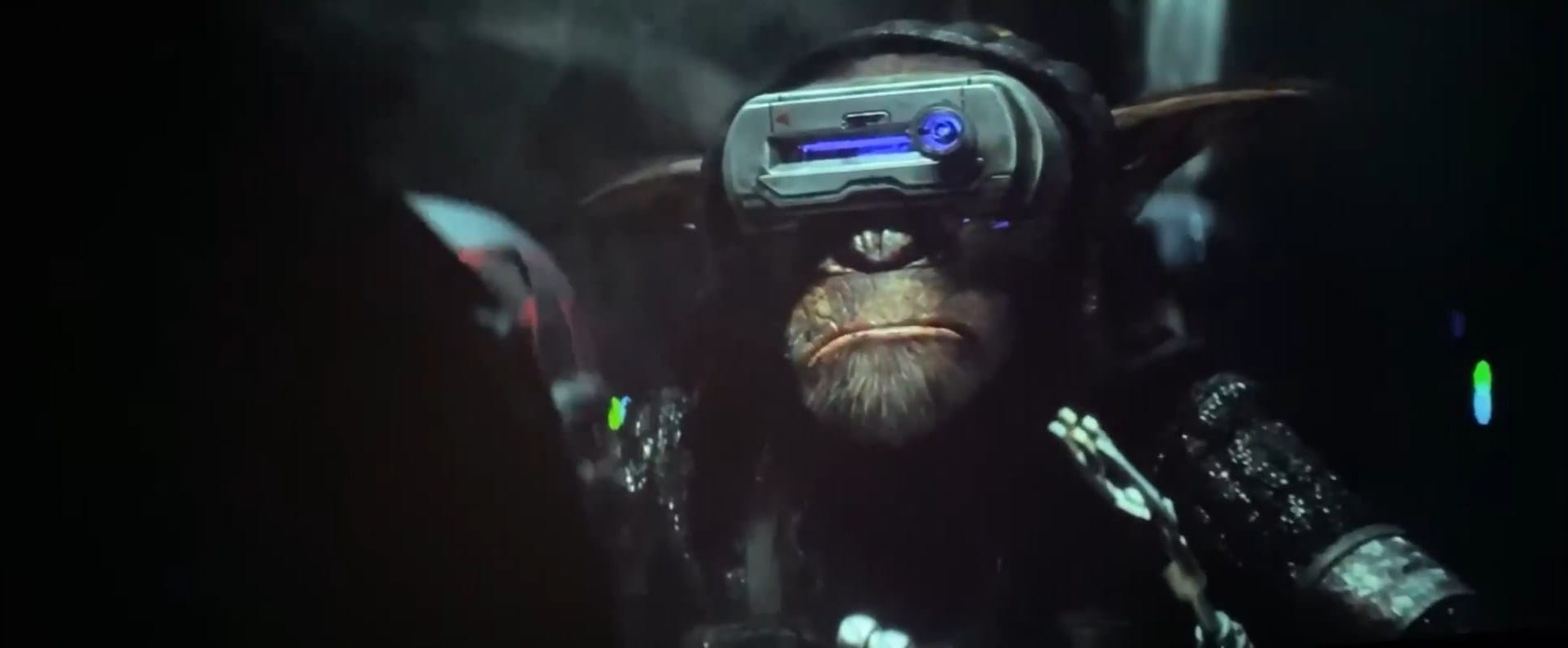
The cutting room floor: For all the talk of extended material, there's not a lot of "deleted scenes" in the book. There's an extended version of Kylo Ren's journey to Mustafar to recover the Sith wayfinder he's after at the beginning of the film (retrieving it from an alien named "The Eye of Webbish Bog"!) and some unnecessary bits of Poe Dameron's smuggler friend Zorii Bliss sneaking toward safety on the planet Kijimi. Returning scoundrel Lando Calrissian gets a bit of extra detail here, like a memory-laden trip into the Millennium Falcon's quarters and a much more explicit reveal that a young daughter was taken from him and indoctrinated into the First Order. (The film heavily implies that Naomi Ackie's heroic Jannah is this missing link.)
The last word: It's not like you could expect Colin Trevorrow's apocryphal, unused draft to form the backbone of The Rise of Skywalker novelization, but the book neither succeeds as a fan-forward expansion or a corrective to a seriously uneven film. Some saga.
